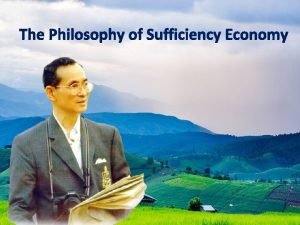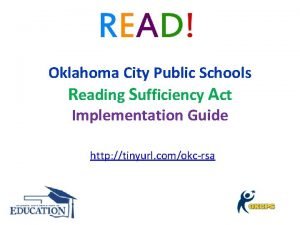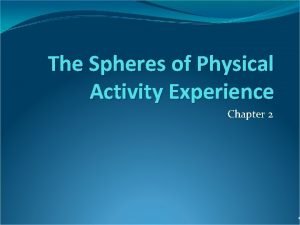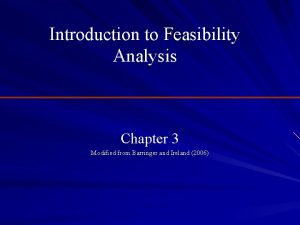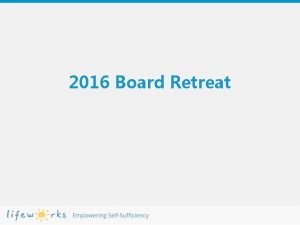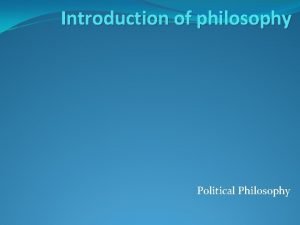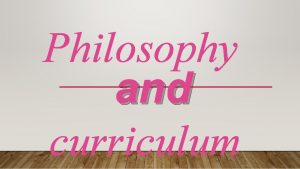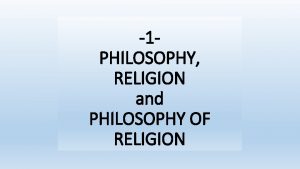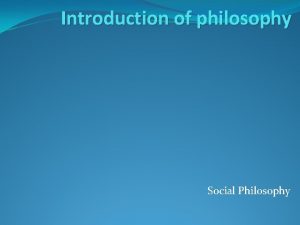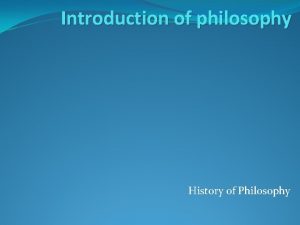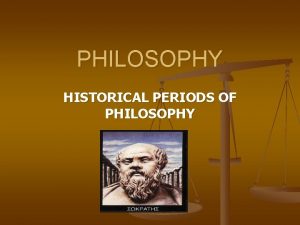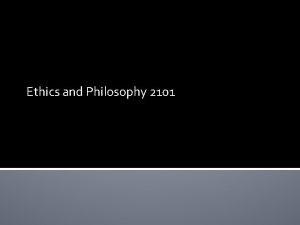Chapter 9 The philosophy of Sufficiency Economy Sufficiency









- Slides: 9

Chapter 9 The philosophy of Sufficiency Economy Sufficiency economy is the name given in Thailand to a development approach attributed to the late King Bhumipol Adulyadej. . The important thing for us is to have a sufficient economy. A sufficient economy means to have enough to support ourselves. 1. Did you agree about Sufficiency Economy? _______________________________ 2. Choose or specify the main idea and express opinions about Sufficiency Economy. _______________________________

Building Vocabulary Match the meaning of the world in column B. 1. Economic a. support somebody to give or be ready to give help to somebody if they need it 2. Economy b. an amount of something that is enough for a particular purpose 3. Support c. the relationship between production, trade and the supply of money in a particular country or region 4. Sufficiency d. an area of a country or city 5. Progress e. to become stronger; to make somebody/something stronger 6. District f. all the inhabitants of a particular town 7. Strengthening g. the study of the fundamental nature of knowledge, reality, and existence, especially when considered as an academic discipline. 8. Population h. a group of houses and associated buildings, larger than a hamlet and smaller than a town, situated in a rural area. 9. Village i. the process of improving or developing, or of getting nearer to achieving or completing something 10. P hilosophy j). connected with the trade, industry and development of wealth of a country, an area or a society

Reading The Philosophy entails three important principles: 1. Moderation 2. Reasonableness 3. Self- immunity If the philosophy of “sufficiency economy” is used in analyzing the causes of the economic crisis that occurred in the past years, we will find that the past development process had ignored the important fundamental principle on sufficiency economy, Sufficiency economy means not only “the ability to be self - reliant, but also “moderation and reasonableness”, unselfishness, extravagance, and “the middle path”. This is because over investment while the majority of the people cannot stand on their own securely would result in lack of “self-immunity”. Therefore, the crisis caused by external factors that struck Thailand severely affected the way of living of the people of all levels as stated in an excerpt from His Majesty’s speech. The development in accordance with the philosophy of sufficiency economy is thus the development of oneself which extends to the level of the families, communities as well as the level of nation. His Majesty stresses that development must be done step by step starting from bu 8 ildng a good basis for the people to enable them to have enough to live on and enough to eat and then to become self-reliant. To fulfill His Majesty’s initiative on development, the National Economic and Social Development Board (NESDB) humbly applies the philosophy of sufficiency economy as the guideline for the development and administration of the country by incorporating it in the Ninth national Economic and Social Development Plan which covers the period from 2002 to 2006. Based on the concept and principle of sufficiency economy, a balanced development framework in all important aspects: human, social, economic and environmental, is stressed. The middle path is followed as the main guiding light to free the country from crises as well as to ensure its secure, balanced and sustainable development.

Sufficiency Economy: Application The philosophy of sufficiency economy which is advised by His Majesty as guidelines for conducting daily life for the people of all levels from the family level, the community level to the national level has the following principles: At the family or individual level: Each individual must have conscience in their daily conduct, and lead a happy, joyful and moderate life. One should carry out a simple life, be engaged in a proper career to raise oneself and his family at a sufficient level and refrain from taking advantages of other people while being generous to them. At the community level: The people must join hands in their activities, participate in the decision making process in the community, develop mutual learning process, and appropriately apply the technology in the development of the community. The principle is that the applied knowledge and know-how must be economical, simple, and locally available. The point is one must learn to apply what is available in the region to solve the problems without having to rely on high investment or the use of complicated technology. At the national level: A holistic development process should be promoted to create balance. The social, economic, and resource capitals should be taken into consideration. In the promotion of production, the potentials of the country’s domestic factors should be analyzed to guide types of merchandises to be promoted. Importantly, all merchandises produced should first meet the demands in the country before being exported. In the management, low risks should be encouraged. That is, we should not over-invest because such act will lead to debts which could increase beyond our capability to manage. The country should have careful planning, keep pace with changes in the world and be able to use the natural resources in a worthwhile manner while conserving and preserving the environment. In addition, social capitals such as the educational system and the local wisdom should be developed in order to uplift the country’s capability in creating innovation and technology which is appropriate to the country as well as cost-saving and simple. The purpose is to reduce imports of technology and dependence on other countries as stated in a following excerpt from His Majesty’s speech.

Answer the following questions: 1. How to apply the Sufficiency Economy to our lives? ____________________________________________________________________ 2. What happened if some people disagree about Proficiency Economy? _____________________________________________________________________

Grammar Focus Present simple tense We use the present simple tense to express the following ideas: To express habits, general truths, repeated actions or unchanging situations, emotions and wishes: I smoke (habit) I work in London (unchanging situation) London is a large city (general truth) Ø Ø To give instructions or directions: You walk for two hundred meters, then you turn left. Ø To express fixed arrangements, present or future: Your exam starts at 08. 00. Ø To express future time, after some conjunctions: after, when, before, as soon as, until: He'll give it to you when you come next Saturday.

Forming the Present Simple Subject verb rest of sentence I / You / We / Theysleep late on Saturdays He / She / It goes to the beach every weekend EXAMPLES For habits • He drinks tea at breakfast. • She only eats fish. • They watch television regularly. For repeated actions or events • We catch the bus every morning. • It rains every afternoon in the hot season. • They drive to Chiang Mai every summer. For general truths • Water freezes at zero degrees. • The Earth revolves around the Sun. For instructions or directions • Open the packet and pour the contents into hot water. • You take the No. 18 bus to Victory monument and then the No. 19 to Central Pinklao. For fixed arrangements • His father arrives tomorrow. • Our holiday starts on the 22 December With future constructions • He'll see you before he leaves. • We'll give it to him when he arrives.

Choose the correct form of the following verbs from the box: wake(s) up open(s) live(s) speak (s) play (s) take(s) do(es) close (s) live (s) 1. Keng _______ hand ball very well. 2. I never______ coffees 3. The swimming pool ____ at 8. 00 in the morning. 4. It ______ at 10: 00 in the evening. 5. Bad driving _______ many accidents. 6. My parents _______ in a very small flat. 7. The ASEAN Games ____ place every four years. 8. They are good students. They always ______ their homework. 9. My students ____ a little English. 10. I always _____ early in the morning. Put the verbs between brackets in the correct form: 1. 2. 3. 4. 5. Jhon (not / drink) ________ tea very often. What time ( the banks / open) ________ in Thailand? Where ( Pisit / come) ________ from? It (take) ______ me an hour to get to farm. Robert ( not / wake ) __________ up early on Sundays. cause (s) drink (s)

Writing Learning about Sufficiency Economy is important for that use in our daily life and it has a lot of benefit for people in daily life. Student must read the passage of Sufficiency economy and express their opinions on how they can apply the Sufficiency Economy in their lives. Write 100 words ____________________________________________________________________________________ ____________________________________________________________________________________ ____________________________________________________________________________________ ____________________________________________________________________________________ ____________________________________________________________________________________
